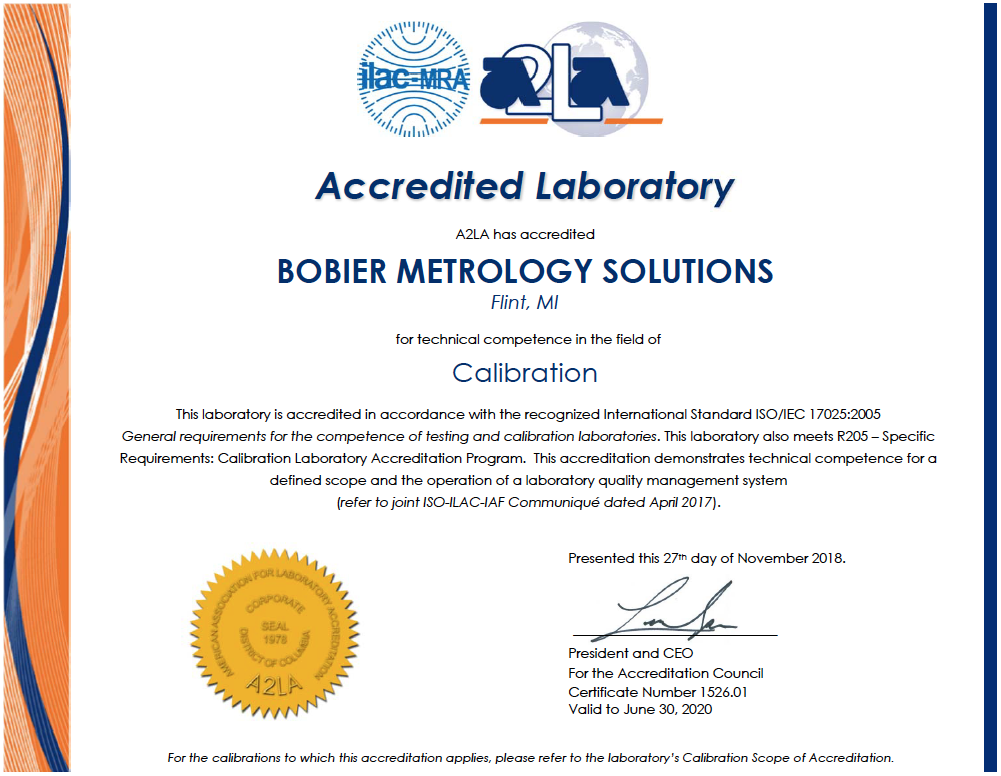Bobier MetrologyISO17025 vs ISO9001
Over 70 years of excellence
Advantages to Consider
To ensure continued compliance, accredited facilities are regularly reexamined to ensure they maintain their standards of technical expertise. These facilities may also be required to participate in regular proficiency testing programs or inter-laboratory comparisons as an ongoing demonstration of their competence. ISO 9001 does not evaluate the technical competence of a supplier or technician. This means the evaluation of a supplier against ISO 9001 does not assure your company or your customers that the test, inspection, or calibration data are accurate and reliable.
Throughout the world, countries now rely on Independent Laboratory Accreditation Bureaus for evaluating laboratory competence.
Unlike ISO 9001 certification, laboratory accreditation uses criteria and procedures specifically developed to determine technical competence. Independent A2LA technical assessors conduct a thorough evaluation of all factors in a facility that affects the accuracy and repeatability of measurement data.
This ISO/IEC 17025 standard specifically addresses factors relevant to a laboratory’s ability to produce precise, accurate test and calibration data; including:
Conclusion
There are differences between the purpose, criteria, and emphasis of the ISO 9001 quality system standards and those of the accreditation standard ISO/IEC 17025.
For laboratories concerned with demonstrating technical competence underlying their quality system, ISO/IEC 17025 is the appropriate standard. Similarly, suppliers seeking competent testing facilities should ensure that those facilities are accredited to ISO/IEC 17025, with a scope of accreditation appropriate for the testing or calibration required.
Conclusion
Minimize Risk
- For the manufacturer or supplier, choosing a technical competent laboratory minimizes the risk of producing or supplying a faulty product.
ISO/IEC 17025
- ISO/IEC 17025 certifications are recognized worldwide as stipulated in the International Laboratory Accreditation System (ILAC).
Avoid Expensive Retesting
- Testing of products and materials can be expensive and time consuming, even when they are done correctly the first time. If not done correctly, then the cost and time involved in retesting can be even higher if the product has failed to meet specification. Not only do costs go up, but your reputation as a supplier or manufacturer can go down. You can also be held liable for any failure of your product, particularly if it involves public safety or financial loss to a client. Choosing an ISO/IEC 17025 laboratory minimizes that risk!



